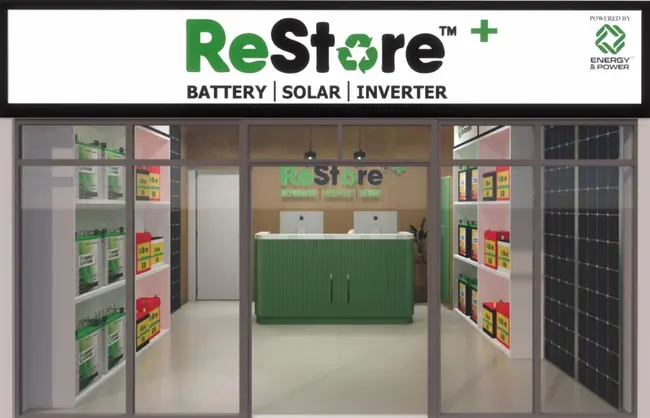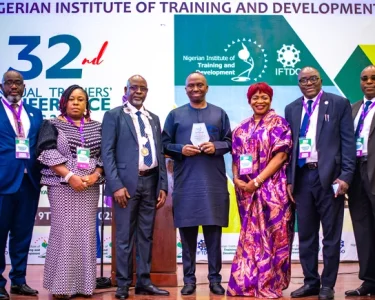AMA PRESS RELEASE
ReStore, a pioneer in lead-acid battery rejuvenation and refurbishment, is set to expand into Africa. By offering an innovative and cost-effective franchisee business model, ReStore aims to empower local entrepreneurs while promoting circular economic growth and sustainability.
With over 500 successful franchise outlets in India and a proven track record 1million batteries in lead-acid battery rejuvenation, ReStore has transformed the battery industry by providing an affordable & sustainable alternative to purchasing new batteries.
The company specializes in rejuvenating lead-acid batteries used in various stationary applications through its proprietary technology EBEP (Electro-Chemical Battery Enhancement Process), extending battery lifespan by 1-2 years and reducing environmental waste. By extending the lifespan of batteries that would otherwise be discarded, ReStore reduces energy costs, minimizes e-waste and enhances access to reliable power solutions.
Energy reliability remains a critical issue in many African countries, with businesses and households depending on batteries for backup power and renewable energy storage. However, the high cost of new batteries presents a financial burden. ReStore’s entry into the African market provides a sustainable solution by extending battery life, offering cost savings and making energy storage more accessible.
According to Straits Research, the global lead-acid battery market was valued at USD 53.3 billion this year and is projected to grow from USD 55.95 billion in 2025 to USD 82.78 billion by 2033, with a CAGR of 5.02% during the forecast period.
However, the manufacturing and disposal of lead-acid batteries pose significant environmental challenges. Containing toxic materials like lead and sulfuric acid, improper disposal can result in severe environmental degradation, affecting ecosystems and human health.
In response, Battery Rejuvenation using EBEP technology has emerged as a sustainable and innovative solution to these concerns. By significantly extending battery life, this process reduces the carbon footprint associated with both the manufacturing and disposal of batteries. ReStore’s approach aligns with UN Sustainable Development Goal 12: Responsible Consumption and Production, ensuring that resources are conserved while reducing environmental impact.
ReStore’s franchise model is designed to empower aspiring business owners by offering an affordable, scalable, and profitable venture.
“Our mission is to make battery rejuvenation technology accessible to entrepreneurs in Africa” said Irfan Ahmed, CEO EMEA at ReStore. “By introducing a sustainable and profitable business model, we not only aim to redefine the market but also to train the micro and small entrepreneurs on our EBEP technology that will help in creating job opportunities, reduce battery waste and provide affordable energy solutions to millions of people. Our entry into the African market is a significant step toward empowering local businesses and supporting economic development.”
As Africa continues to embrace renewable energy, the demand for sustainable battery solutions is at an all-time high. ReStore enables individuals and businesses to maintain reliable power storage without the financial burden of frequent battery replacements.
Through its “Refurbish, Reuse, Recycle” approach, ReStore actively minimizes e-waste while promoting a circular economy. By integrating EBEP technology, the brand helps conserve resources, lower carbon emissions, and prevent hazardous waste from polluting the environment.
With a vision to establish a strong presence across Africa, ReStore is actively seeking franchise partners in West and South African territories. The company invites entrepreneurs, investors, and businesses to explore partnership opportunities and join the movement toward affordable, sustainable energy solutions.
By bringing eco-friendly battery rejuvenation technology to Africa, ReStore is helping shape a more sustainable, affordable and energy-secure future.
As ReStore expands its footprint in Africa, it remains dedicated to making a positive impact on local economies, environmental sustainability and energy accessibility.




